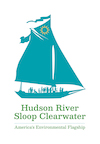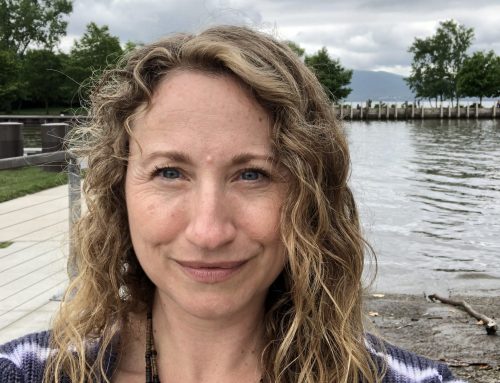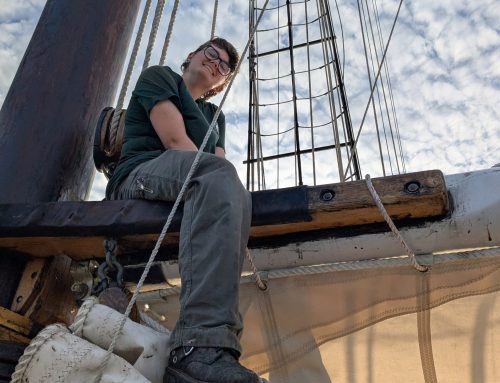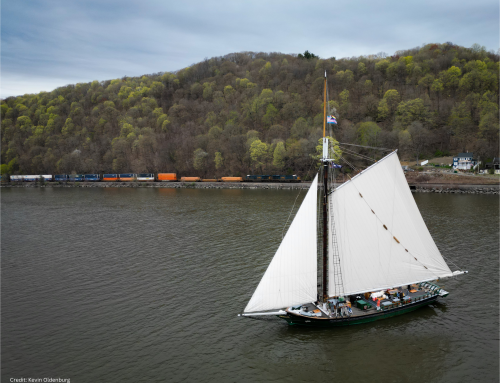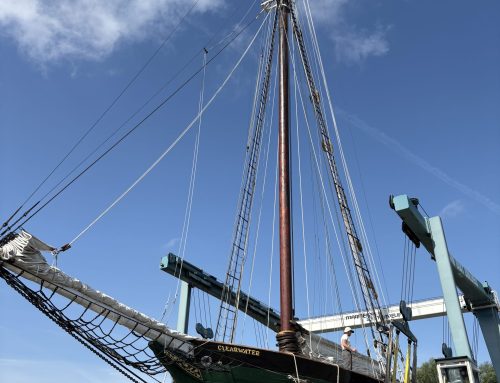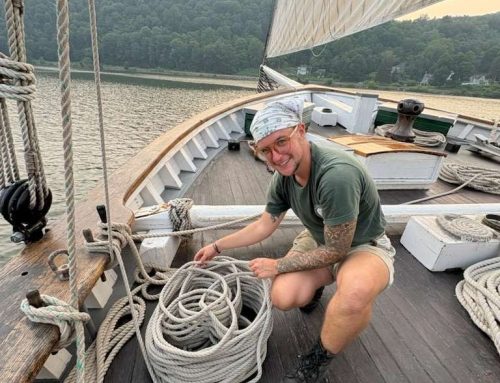Skip to content
May 2022: EA Update
May 2022 Environmental Update
NY-NJ Watershed Protection Act: The New York-New Jersey Watershed Protection Act would provide $50 million, as well as technical support from federal agencies, for watershed protection at a time when the Hudson River estuary is threatened by sea-level rise and habitat loss. This much needed bill, introduced in the House by U.S. Rep. Paul D. Tonko (D-Amsterdam, NY) is making its way through Congress with bipartisan support. A similar bill is expected to be introduced in the Senate. We will keep you posted and let you know how you can help.
PCB Update: EPA Begins Third Five-Year Review of Upper Hudson River PCB Cleanup
 In April the U.S. Environmental Protection Agency initiated its third five-year review of the cleanup of the Hudson River PCBs Superfund site, which extends from Hudson Falls, NY to New York City. Dredging to remove polychlorinated biphenyls (PCBs) from a 40-mile stretch of the upper Hudson River between Fort Edward and Troy, New York was completed in 2015. The cleanup was conducted by General Electric (GE) Company under the oversight of and a legal agreement with EPA. This five-year review, which is legally required under the Superfund law, will assess whether the cleanup is working as intended and is protective of people’s health and the environment.
In April the U.S. Environmental Protection Agency initiated its third five-year review of the cleanup of the Hudson River PCBs Superfund site, which extends from Hudson Falls, NY to New York City. Dredging to remove polychlorinated biphenyls (PCBs) from a 40-mile stretch of the upper Hudson River between Fort Edward and Troy, New York was completed in 2015. The cleanup was conducted by General Electric (GE) Company under the oversight of and a legal agreement with EPA. This five-year review, which is legally required under the Superfund law, will assess whether the cleanup is working as intended and is protective of people’s health and the environment.
“As we continue our work to monitor and assess the upper Hudson, move forward with the Hudson River floodplain investigation and evaluate how best to assess the lower Hudson, EPA is committed to continuing to fully engage our state and federal partners and the site’s Community Advisory Group during the five-year review process,” said EPA Regional Administrator, Lisa F. Garcia. “It has been EPA’s long-standing experience on this iconic site that engagement from the public has strengthened our work and served well communities up and down the Hudson.”
Between the 1940’s and 1970’s, GE discharged PCBs into the Hudson River from its two former capacitor manufacturing plants in Fort Edward and Hudson Falls. In 2002, EPA issued a Record of Decision calling for the targeted environmental dredging of approximately 2.65 million cubic yards of PCB-contaminated sediment from a 40-mile stretch of the Upper Hudson River.. The dredging and capping work in the Upper Hudson River was conducted between 2009 and 2015.
EPA will be evaluating new data collected since the second five-year review was conducted in 2017. They will review the fish, water and sediment data collected between 2017 and 2021. In the second five-year review report, issued in 2019, EPA deferred a determination about the protectiveness of the cleanup remedy in the Upper Hudson River until additional Hudson River fish tissue data can be gathered. It is anticipated that additional years of data may still be needed to determine the rate of fish recovery with statistical confidence. Lowering PCB levels in fish tissue is the key objective of the cleanup remedy selected in 2002 by EPA. EPA is also continuing its plans for supplemental studies in the Lower Hudson River. EPA expects to release the third five-year review report in fall 2022 The third five-year review report will be posted on the EPA Hudson River webpage with more information about the Hudson River PCBs Superfund site. Prior to issuing the report, EPA also will present on the progress of the review to the site’s Community Advisory Group (CAG), on which Clearwater has served since its inception in January 2004.
Clearwater Comments on the Climate Action Council Draft Scoping Plan to implement New York’s urgently needed Climate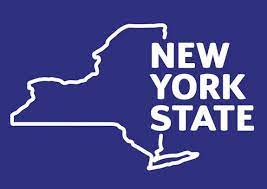 Action and Community Protection Act (CLCPA): In addition to developing our own comments, Clearwater is actively coordinating 7-county Mid-Hudson Regional Energy Working Group comments. Actions Please sign up to offer comments at an upcoming hearing or submit comments in writing. Details are available on the Climate Act website
Action and Community Protection Act (CLCPA): In addition to developing our own comments, Clearwater is actively coordinating 7-county Mid-Hudson Regional Energy Working Group comments. Actions Please sign up to offer comments at an upcoming hearing or submit comments in writing. Details are available on the Climate Act website
Key Talking Points on Draft Scoping Plan: Identify policies, projects, and other initiatives that support or present barriers to achieving CLCPA goals, including:
-
Equitable sharing of the costs of much needed grid upgrades between developer and utility and NY State, including applying any Federal funding available to do so.
-
Ensure renewable energy (RE) infrastructure with storage precedes beneficial electrification to avoid burning more fossil fuel if demand increases before RE is in place.
-
Utilities lowering rebates on air-source heat pumps slows implementation; geothermal rebates maintained
-
Consumer Benefit Charge (CBC) net-metering surcharge significantly hinders solar development in NY.
-
Building energy retrofits: superinsulation with careful air-sealing employing healthy building practices are a major source of energy efficiency.
Hearings: Weds., May 11 at 4 p.m. VIRTUAL
Thurs., May 12, 4 – 7 p.m. at Paramount Hudson Valley Theater, 1008 Brown St., Peekskill, NY 10566
This in-person meeting was added at the widespread request of many Mid-Hudson residents and organizations, so please make an effort to attend. An EV caravan will be leaving for Peekskill from New Paltz Park ‘n Ride at 2:15 p.m. Please join us if you can.
Pre-registration is encouraged but not required for all hearings. All persons, organizations, corporations, and government agencies are encouraged to attend the public hearings and to submit oral or written comments. Written comments can be submitted through June 10, via the online public comment form, via email to scopingplan@nyserda.ny.gov, or via U.S. Mail to Attention: Draft Scoping Plan Comments, NYSERDA, 17 Columbia Circle, Albany, NY 12203-6399.
 DEC Water Quality Improvement Grants: DEC’s Division of Water (DOW) has two grant programs available in the Consolidated Funding Application. New this year, these programs are not part of the Regional Economic Development Councils initiative and are considered “standalone CFA programs”. On Tues., May 17 at 11:00 a.m. there will be a virtual overview of these two grant opportunities. Register to attend the webinar.
DEC Water Quality Improvement Grants: DEC’s Division of Water (DOW) has two grant programs available in the Consolidated Funding Application. New this year, these programs are not part of the Regional Economic Development Councils initiative and are considered “standalone CFA programs”. On Tues., May 17 at 11:00 a.m. there will be a virtual overview of these two grant opportunities. Register to attend the webinar.
-
Water Quality Improvement Projects (WQIP): WQIP funds implementation projects to improve water quality or protect a drinking water source.
-
Non-Agricultural Nonpoint Source Planning and MS4 Mapping Grant (NPG): NPG funds production of planning reports for nonpoint source water quality improvement projects and mapping of Municipal Separate Storm Sewer Systems (MS4).
For full program details and requirements, including maximum award amounts,see: DEC’s NPG webpage.
Other Events of Interest:
Water Week May 8 – 14: Caring for the Waters We Share during New York Water Week. This year marks the 50th anniversary of the passage of the federal Clean Water Act of 1972. The work of caring for the land and waters around us is a daily, year-round effort. Environmental organizations, research institutions, colleges and universities, watershed groups, local officials, and community volunteers all help to conserve, restore, and protect these special places. Fully restoring and protecting the health of New York’s waters will continue to take funding and collaborative efforts for research, planning, and implementation of new technologies and practices.
Thurs., May 19, 6-9 p.m NYS Decommissioning Oversight Board (DOB): On March 17, the NYS Decommissioning Oversight Board held its second meeting, which featured pipeline safety expert, Rick Kurprewitz, who presented on the risks associated with the gas pipelines that run underneath and adjacent to Indian Point. The May 19 meeting, which will be virtual, will include information on Emergency Response. You are encouraged to sign up to view and offer comment. The 2022 DOB Meeting schedule is here.
Share This Story, Choose Your Platform!
Page load link
 In April the U.S. Environmental Protection Agency initiated its third five-year review of the cleanup of the Hudson River PCBs Superfund site, which extends from Hudson Falls, NY to New York City. Dredging to remove polychlorinated biphenyls (PCBs) from a 40-mile stretch of the upper Hudson River between Fort Edward and Troy, New York was completed in 2015. The cleanup was conducted by General Electric (GE) Company under the oversight of and a legal agreement with EPA. This five-year review, which is legally required under the Superfund law, will assess whether the cleanup is working as intended and is protective of people’s health and the environment.
In April the U.S. Environmental Protection Agency initiated its third five-year review of the cleanup of the Hudson River PCBs Superfund site, which extends from Hudson Falls, NY to New York City. Dredging to remove polychlorinated biphenyls (PCBs) from a 40-mile stretch of the upper Hudson River between Fort Edward and Troy, New York was completed in 2015. The cleanup was conducted by General Electric (GE) Company under the oversight of and a legal agreement with EPA. This five-year review, which is legally required under the Superfund law, will assess whether the cleanup is working as intended and is protective of people’s health and the environment. Action and Community Protection Act (CLCPA): In addition to developing our own comments, Clearwater is actively coordinating 7-county Mid-Hudson Regional Energy Working Group comments. Actions Please sign up to offer comments at an upcoming hearing or submit comments in writing. Details are available on the Climate Act website
Action and Community Protection Act (CLCPA): In addition to developing our own comments, Clearwater is actively coordinating 7-county Mid-Hudson Regional Energy Working Group comments. Actions Please sign up to offer comments at an upcoming hearing or submit comments in writing. Details are available on the Climate Act website DEC Water Quality Improvement Grants: DEC’s Division of Water (DOW) has two grant programs available in the Consolidated Funding Application. New this year, these programs are not part of the Regional Economic Development Councils initiative and are considered “standalone CFA programs”. On Tues., May 17 at 11:00 a.m. there will be a virtual overview of these two grant opportunities. Register to attend the webinar.
DEC Water Quality Improvement Grants: DEC’s Division of Water (DOW) has two grant programs available in the Consolidated Funding Application. New this year, these programs are not part of the Regional Economic Development Councils initiative and are considered “standalone CFA programs”. On Tues., May 17 at 11:00 a.m. there will be a virtual overview of these two grant opportunities. Register to attend the webinar.